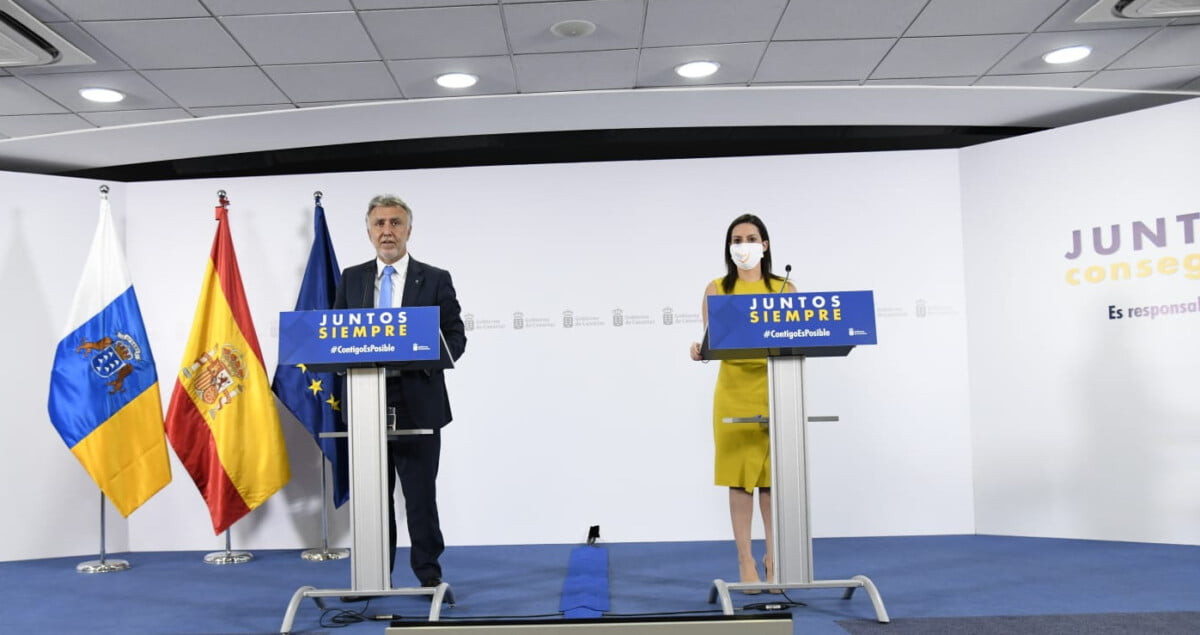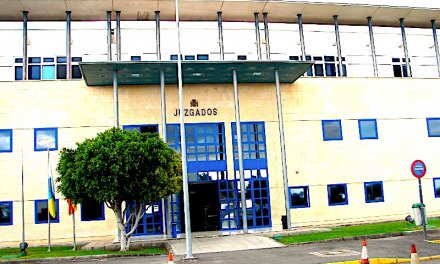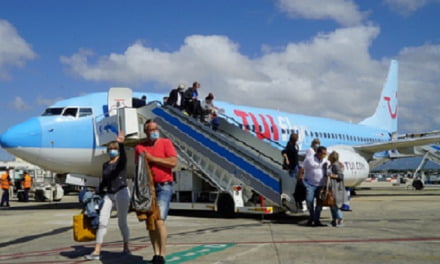The legal text, approved by the Governing Council, and put forward by the Ministry of Tourism, Industry and Commerce, Health, and Public Administration, Justice and Security, also makes clear that before reserving or contracting any regulated tourist accommodation in the Canary Islands, visitors must be informed that access conditions include completion of that diagnostic test. In addition, it will be necessary for the client accept that they have received this information.
The Canary Islands Government has based this legislative measure on the need to incorporate it into existing regulations for tourism accommodation to guarantee protection of visitors’ health, in addition to trying to avoid paralysis of tourism related economic activities due to risks of transmission of SARS-CoV-2 coronavirus, which causes COVID-19.
The Canary Islands has thereby become the first Spanish autonomous community to require diagnostic tests at the place of origin of each tourist, providing also for the possibility that these tests may need to be performed at destination prior to entering the tourist accommodation establishment, should anyone arrive without certification.
The rule exempts Canary Island residents who can simply declare, in a sworn, signed statement, that they have not left the archipelago in the 15 days prior to their arrival at an establishment, also non-residents who can prove, with their travel documents or similar, that they have been on the islands for at least 15 days prior to their arrival at a regulated accommodation establishment.
Tourist accommodations must take responsibility for verification of certificates that are provided before allowing access to their facilities, and have a duty to provide information regarding where tourists can undergo diagnostic tests if they have not already been done. Establishments must deny access to people who do not meet these new conditions, having certified a negative test for COVID-19.
Tourists themselves will be able to certify the completion of the diagnostic test within the 72 hours prior to their arrival by providing a certificate, either electronically or on paper. This document must state the date and time of the test, the identity of the tourist, name the laboratory responsible for its verification and its nature, as well as the negative result.
The obligation to accredit a negative COVID-19 test for each visitor arriving on the Canary Islands, to stay in regulated establishments, will apply 10 days after this decree-law enters into force.
The provisions of the new standard set out the protocol to follow in the event that a tourist is diagnosed as a carrier of COVID-19, whereby the government will provide suitable establishments.














When will the locations of the COVID testing sites be available and what will be the cost ..? Is this information being provided by the Authorities .?
There are likely to be a range of options, though exact logistics have yet to be announced. Tour Operators will inform their clients, and tourist accommodations will inform their own direct clients. If the test has not been done on arrival, accommodations will direct clients to local facilities
It is not clear, do you have to show the certificate at the airport on arrival or when arriving in the accomodation?
right now, neither. Once implemented, in the next week or two, certification will have to be shown when arriving at accommodation. There is work ongoing to also implement tests at airports
as we don,t have any chance scotland,uk,,of booking tests as not available,how on earth do they expect people to get this??and also after a test ,the next day travel etc,,a person could catch infection so travel not knowing having it??.and more tourists will probably avoid travel there ,cost ,,cheaper going other countries,and how long will tests be needed??months ,years,,or always,,,
Those who do not have tests prior to travel can get tested here at a cost of around 25-30€, but may need to isolate while they wait for results. More information will be made clearer over the next week.
I’m due to travel on 5th Nov til the 12th or the 7th to the 14th, will this affect me and will I need to get a test mid trip?
This will not affect tourists arriving before the 14th of November
Can i arrive at gran Canaria and have a test done there, or do I have to have it before I arrive
That depends on where you are flying from, if it is a country or territory still listed as high risk then you will need a negative PCR test done within 72 before you travel. If the country is not any longer deemed as High Risk, then you will just need either a negative PCR or a Rapid Antigen test before booking into any Canary Islands tourist accommodation.
So does this mean that one has to get a new test if changing accommodation? If one would have a test taken before arrival and present it on arrival at a hotel and stay there for 4 days and the move to another hotel the initial test would then be too old.
In theory you would not need another test if you can show with your travel documents when you have arrived and where you have stayed, though there is of course room for interpretation in this particular scenario. It is all quite new, best to communicate with your accommodation provider
I arrived in Tenerife on the 6th November from Scotland. We are travelling around the Canaries do I need a test as we are moving between rental accommodation. We are here for 5 weeks.
After the 14th of November all tourist accommodations have to verify that you have had a test prior to check in, so long as you can show that you had a test result verified by your previous accommodation, and have travel documents to show your when inbound flight was, in theory, you should not need to do the test again, unless you come into contact with the infection. Each accommodation may vary slightly on their interpretation of the new law, best thing to do is call them and get them to tell you what their process will be
I have owned my own apartment in Puerto Rico Gran Canaria for over 20 Years and travel there very often and hopefully, on the 12.th December on a flight only basis and can only assume it is because of this that the tour operator is a little unhelpful in my requests for help on the subject of the new legislation regards having to carry a negative Covid test.
I am also finding it very difficult to find anywhere in my region (North East England) to obtain a reliable test done. in the prescribed time limit. I have recently had a negative test done locally by the NHS. Can I still travel without a test, going to my own home in the Canaries, or does this ever changing declaration still apply.
No. If you are flying from a high risk country then you need a PCR test result obtained within the 72 hours prior to arrival in Spain
Do I need a PCR test if i am travelling to Fuerteventura and staying in my owned property from England on 11th December 2020